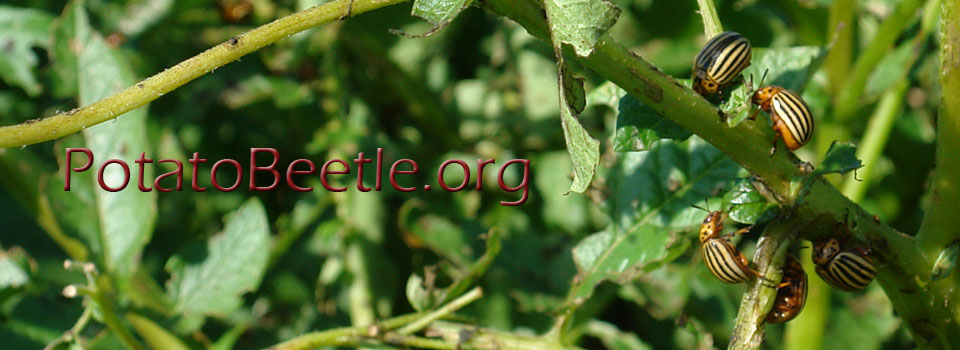Izzo VM, Chen YH, Schoville SD, Cong W, Hawthorne DJ. J Econ Entomol. 2018;111(2):868-878. doi: 10.1093/jee/tox367.
Colorado potato beetle (Leptinotarsa decemlineata Say [Coleoptera: Chrysomelidae]) is a pest of potato throughout the Northern Hemisphere, but little is known about the beetle's origins as a pest. We sampled the beetle from uncultivated Solanum host plants in Mexico, and from pest and non-pest populations in the United States and used mitochondrial DNA and nuclear loci to examine three hypotheses on the origin of the pest lineages: (1) the pest beetles originated from Mexican populations, (2) they descended from hybridization between previously divergent populations, or (3) they descended from populations that are native to the Plains states in the United States. Mitochondrial haplotypes of non-pest populations from Mexico and Arizona differed substantially from beetles collected from the southern plains and potato fields in the United States, indicating that beetles from Mexico and Arizona did not contribute to founding the pest lineages. Similar results were observed for AFLP and microsatellite data. In contrast, non-pest populations from the states of Colorado, Kansas, Nebraska, New Mexico, and Texas were genetically similar to U.S. pest populations, indicating that they contributed to the founding of the pest lineages. Most of the pest populations do not show a significant reduction in genetic diversity compared to the plains populations in the United States. We conclude that genetically heterogeneous beetle populations expanded onto potato from native Solanum hosts. This mode of host range expansion may have contributed to the abundant genetic diversity of contemporary populations, perhaps contributing to the rapid evolution of climate tolerance, host range, and insecticide resistance.
